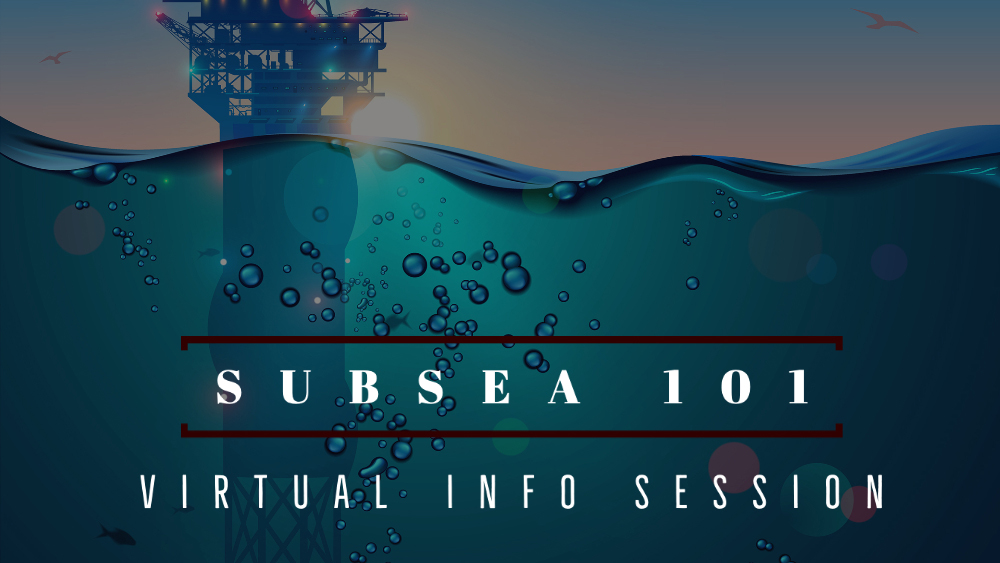
As the new semester begins, one director in the College of Engineering is hoping to attract a new cohort of students to an engineering sector he’s passionate about — subsea engineering. Ronald Ledbetter, director of subsea engineering at Texas A&M University, is an expert in subsea engineering systems and offshore field development. He spent more than four decades working in the oil and gas industry, and he’s excited for the opportunity to train future engineers who will solve many of the problems the industry is currently facing.
On Aug. 21, Ledbetter will host a virtual information session that is open to anyone interested in learning more about the two graduate degrees offered at Texas A&M focused on subsea engineering — a Master of Engineering in engineering and a Master of Science in interdisciplinary engineering. Ledbetter has invited two industry leaders to join him for Subsea 101. They’ll provide an overview of what a career as a subsea engineer entails.
Karl Schnakenburg, a subsea engineering advisor in the oil and gas industry, and Mark Carter, a retired subsea engineer with more than 31 years of experience, will be offering their expertise during the half-day event.
“I’m thrilled that Mr. Schnakenburg and Mr. Carter will be joining us,” Ledbetter said. “They are industry-recognized experts in their field, and this is a tremendous opportunity for our students to have the chance to speak directly with both of these men and hear their perspectives of the oil and gas industry and their careers.”
Schnakenburg said he is excited for the opportunity to talk to students from Texas A&M.
“This is such a niche market, and this is a good opportunity to share what we do,” he said. “I think students will gain a broader understanding of what subsea engineering is about and whether this fits within their interests.”
Schnakenburg said while the energy industry is shifting to renewable sources, this shift will take many decades. In the meantime, he believes many offshore oil and gas projects will continue.
While many subsea engineers work in the oil and gas industry, they are not limited to that industry alone.
“We study structures, corrosion, soil mechanics, subsea control systems and many other aspects that are relevant to almost any type of offshore construction or development,” he said. “Most envision offshore wind farms and other facilities that will help power our future world.”
Carter agreed that subsea engineers are still in great demand.
“Subsea fields are very attractive in terms of productivity, and therefore, economic return,” he said. “It is not the only way to produce lots of oil and gas, but it is one of the leading methods and has been spreading to offshore basins worldwide. I foresee the need for these resources long into the future.”
A relatively new profession, Schnakenburg said subsea engineering offers many unique opportunities and technical challenges.
“The profession may take you almost anywhere on the planet, and it may, with a bit of luck, provide opportunities and applications in other future offshore businesses,” he said.
Subsea 101 is open to all engineering students and is not limited to students at Texas A&M. For more information about the event, and to register, visit the event website.
On Aug. 21, Ledbetter will host a virtual information session that is open to anyone interested in learning more about the two graduate degrees offered at Texas A&M focused on subsea engineering — a Master of Engineering in engineering and a Master of Science in interdisciplinary engineering. Ledbetter has invited two industry leaders to join him for Subsea 101. They’ll provide an overview of what a career as a subsea engineer entails.
Karl Schnakenburg, a subsea engineering advisor in the oil and gas industry, and Mark Carter, a retired subsea engineer with more than 31 years of experience, will be offering their expertise during the half-day event.
“I’m thrilled that Mr. Schnakenburg and Mr. Carter will be joining us,” Ledbetter said. “They are industry-recognized experts in their field, and this is a tremendous opportunity for our students to have the chance to speak directly with both of these men and hear their perspectives of the oil and gas industry and their careers.”
Schnakenburg said he is excited for the opportunity to talk to students from Texas A&M.
“This is such a niche market, and this is a good opportunity to share what we do,” he said. “I think students will gain a broader understanding of what subsea engineering is about and whether this fits within their interests.”
Schnakenburg said while the energy industry is shifting to renewable sources, this shift will take many decades. In the meantime, he believes many offshore oil and gas projects will continue.
While many subsea engineers work in the oil and gas industry, they are not limited to that industry alone.
“We study structures, corrosion, soil mechanics, subsea control systems and many other aspects that are relevant to almost any type of offshore construction or development,” he said. “Most envision offshore wind farms and other facilities that will help power our future world.”
Carter agreed that subsea engineers are still in great demand.
“Subsea fields are very attractive in terms of productivity, and therefore, economic return,” he said. “It is not the only way to produce lots of oil and gas, but it is one of the leading methods and has been spreading to offshore basins worldwide. I foresee the need for these resources long into the future.”
A relatively new profession, Schnakenburg said subsea engineering offers many unique opportunities and technical challenges.
“The profession may take you almost anywhere on the planet, and it may, with a bit of luck, provide opportunities and applications in other future offshore businesses,” he said.
Subsea 101 is open to all engineering students and is not limited to students at Texas A&M. For more information about the event, and to register, visit the event website.